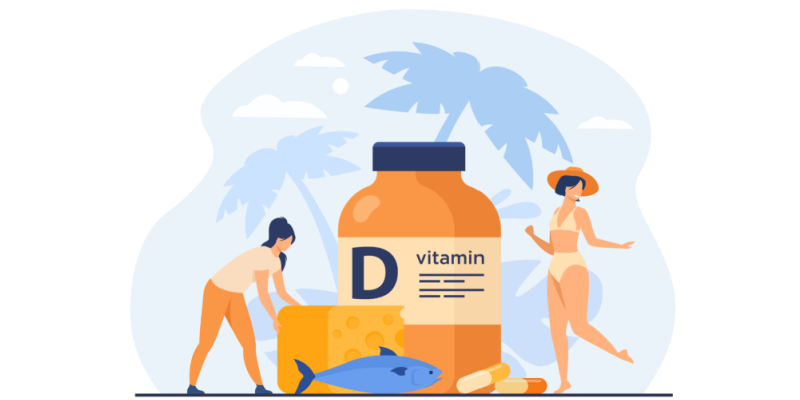By Emmy Bawden
It’s not uncommon for people to take one, or perhaps several, vitamin and mineral supplements these days, which makes sense, given that over-the-counter dietary supplements are a $30 billion per year industry in the U.S. You may take supplements to maintain or enhance your health, but how often do you consider the safety or even the effectiveness of your daily vitamins?
WHAT ARE VITAMINS?
Vitamins (such as vitamin D and B12) and minerals (such as calcium and iron) are essential nutrients that your body needs to maintain normal bodily functions, including supporting your immune system and bone health, repairing cellular damage and forming red blood cells. While vitamins are recommended for some people with certain diets or health conditions, most people do not need to take them because eating a varied, well-balanced diet is likely to provide the amounts your body needs. Think of vitamin supplements more as an insurance policy to fill nutritional gaps in your diet rather than replacing the recommendation to, say, eat plenty of fruits and vegetables.
HOW ARE THEY REGULATED?
You may be surprised to hear that although the Food and Drug Administration (FDA) has oversight of dietary supplements such as vitamins, it does not evaluate their quality, safety or effectiveness before hitting the shelves — that’s the responsibility of the manufacturers. We also don’t have a specific regulatory agency that ensures the supplement you’re taking matches the ingredients on the label, though several independent organizations such as U.S. Pharmacopeia (USP) offers quality testing. Looking for the USP Verified Mark on a vitamin label is a good idea as it indicates the product contains what it says it should, doesn’t contain harmful levels of certain contaminants (like heavy metals), will release properly in the body and has been made according to FDA Good Manufacturing Practices.
WHAT VITAMINS SHOULD I REALLY BE TAKING AS A WOMAN?
I see more and more women in their 20s and 30s adopting plant-based diets, which carries a higher risk for iron deficiency anemia, and therefore, an iron supplement may be warranted. Additionally, those with moderate to heavy menstrual cycles may also want to take an iron supplement for the same reason. For those thinking about becoming pregnant, it’s no secret that prenatal vitamins are important. Although I often see women who are waiting until they become pregnant to start supplementing, it’s actually recommended to start taking prenatal vitamins (especially folic acid) six months before trying to get pregnant to reduce the risk of neural tube defects.
For women in their 40s, a vitamin B12 supplement may be recommended, because your body’s ability to absorb vitamin B12 decreases with age, increasing the risk for vitamin B12 deficiency anemia. Women aged 50 and beyond experience greater bone loss and don’t absorb calcium as efficiently as they did in their younger years, so a calcium plus vitamin D supplement may be beneficial. Although not a vitamin, fish oil may be helpful for women in menopause. A randomized, double-blind, placebo-controlled trial in 2020 showed its potential to improve menopausal symptoms, including hot flashes.
Regardless of age, those who are generally healthy and eat a balanced diet without restriction can probably ditch the multivitamin. Interestingly, 33-49% of people in the U.S. take a multivitamin compared to only 3-8% of people in other countries. However, we don’t have strong evidence to support their use for individuals who aren’t at risk for vitamin or mineral deficiencies, and a standard definition for “multivitamin” doesn’t actually exist!
WHAT RISKS DO VITAMINS HAVE?
One of the biggest misconceptions about vitamins is that they’re risk-free — this is, unfortunately, not true!
Many supplements, including vitamins, can have dangerous interactions with medications. For example, because the acne medication Accutane is chemically similar to vitamin A, taking a vitamin A supplement at the same time increases the risk for vitamin A toxicity. Calcium supplements can significantly reduce the absorption of certain antibiotics. Iodine supplements can aggravate hypothyroidism when taken alongside the commonly prescribed medication
Levothyroxine. And high doses of vitamin E can increase the risk of bleeding when taken with the blood-thinning medication Warfarin.
Many vitamins and minerals also have Tolerable Upper Intake Levels (UL) set and consuming above this amount increases the risk of adverse effects (such as gastrointestinal symptoms) and potentially serious harm (such as organ damage). To highlight how easy exceeding the UL can be, consider the commonly supplemented mineral zinc. It’s not uncommon for someone to take a multivitamin, over-the-counter cold lozenges, and an “immune boosting” supplement all in the same day, especially during the winter. While the UL for zinc is 40 mg per day for adults, this combination of products provides a whopping 75-100 mg!
On top of that, your food may provide more vitamins than you think. Manufacturers often fortify foods with vitamins and minerals, including iron and calcium, and it’s not uncommon to see “green” powders that have hundreds of times the amounts that you need! Even when consumed in amounts below the UL, more doesn’t always mean better. For example, 70-90% of vitamin C is absorbed when you eat a moderate amount, but when you consume too much vitamin C at once, absorption dips to below 50%. This fact is also true with calcium.
WHAT TIME OF DAY IS BEST TO TAKE VITAMINS?
The optimum timing to take vitamins depends on what you take. Many vitamins and minerals need to be taken with food or two to six hours away from certain medications or other supplements. For example, fat-soluble vitamins are best absorbed with fat-containing food, so with dinner may be the opportune time for vitamins A, D, E and K. Conversely, supplements that absorb best on an empty stomach, including iron and B vitamins, may be best to take before breakfast. Iron is a specifically tricky mineral, as taking it with vitamin C enhances absorption while calcium and caffeine decrease absorption. As you can see, taking vitamins can be a puzzle, so ask your doctor or registered dietitian to help you develop a safe supplement routine that you can stick to.




